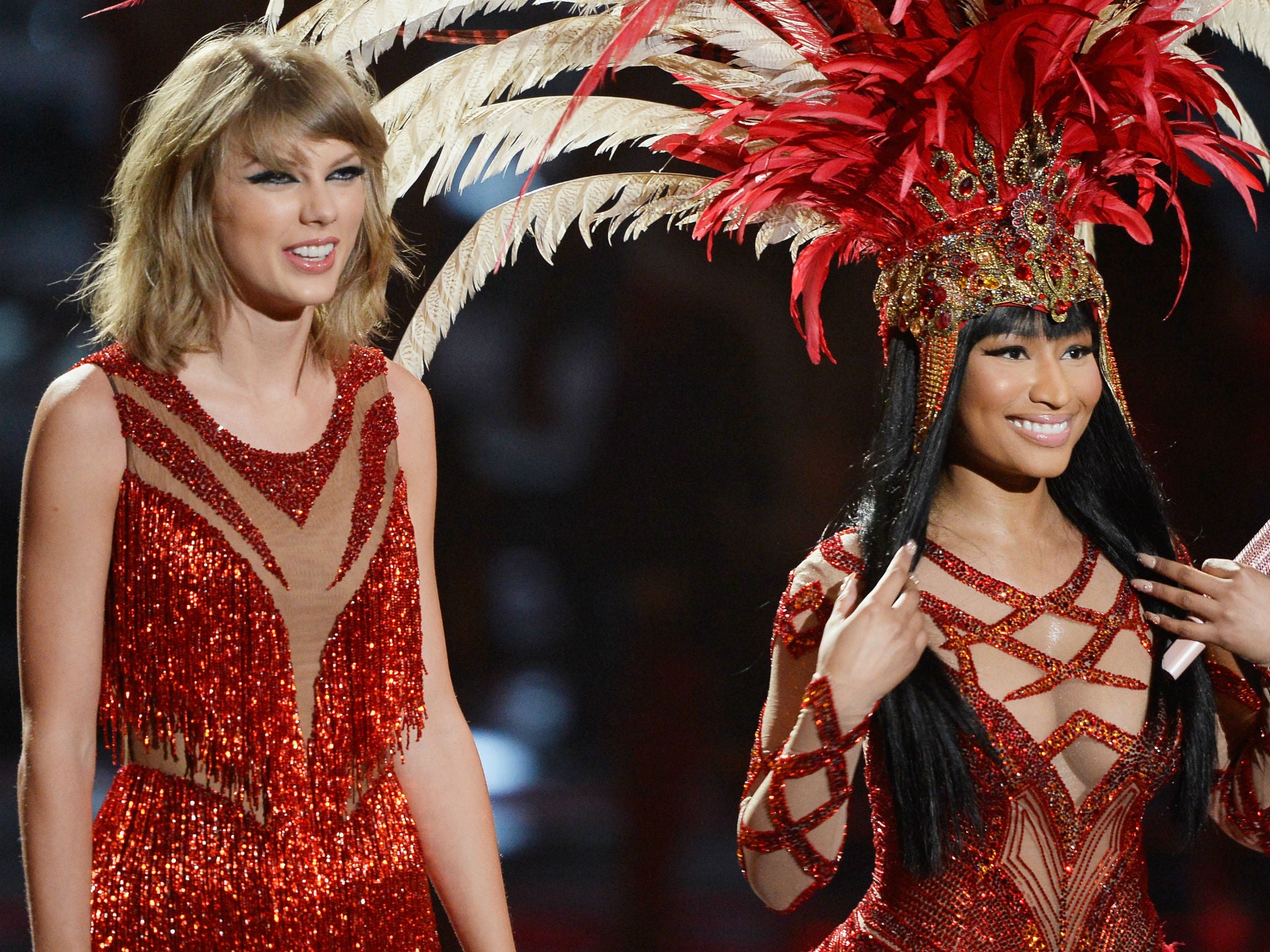Depictions of Nicki Minaj as an ‘Angry Black Woman’ need to stop
Pictures of the enraged pop star featured alongside stories of her twitter spats only add to the belittling of anger felt by women of colour

Multi-award winning singer and songwriter, Nicki Minaj, recently got into an online feud with Farrah Abraham, a reality TV star who gained worldwide notoriety after releasing a sex tape.
News outlets reporting on the spat chose to feature images of an angry-looking Minaj, juxtaposed next to photos of a smiling Abraham and her six year old daughter. The only person to have called out the media for purposely using unsmiling images was Minaj herself. She took to Twitter to provide reporters with the images of her smiling that they struggle to find.
This isn’t the first time the media has tried to dismiss the pop star’s opinions by editorialising her as an “Angry Black Woman”. During her fall-out, albeit brief, with Taylor Swift after last year’s MTV Video Music Awards, she was described as a “stroppy little piece of work” in an article by Piers Morgan, who, in the same piece, described “black Twitter” as a “vocal and aggressive social media group of mainly black Americans”.
It’s bad enough that the “Angry Black Woman” stereotype is rampant in films and reality shows that are filled with unrealistic “reality” stars, such as Love & Hip Hop and Bad Girls Club. But it is worse when the media promotes stereotypes using a real woman.
I can’t imagine Taylor Swift being portrayed as an angry woman for having legitimate grievances. It seems that when Swift has strong opinions she is a courageous feminist. Whereas Nicki Minaj expressing her opinion is used - to quote Swift’s response to Minaj’s criticism of the evident racism in the entertainment industry - “to pit women against each other”.
This doesn’t mean that rage is Minaj’s default emotion. We would happily accept anger as an aberration of character in Swift, so why does it have to be a perennial flaw of Minaj?
Although, it wouldn’t be surprising if Swift and Abraham were not as angry as Minaj. Even if the singer has been found to express annoyance, she has enough legitimate grievances to feel enraged. If Swift or Abraham grew up being force-fed the idea that their skin colour and hair texture automatically make them ugly, criminal suspects and second-class citizens, I’m sure they would be a bit angrier too. Anger is a genuine emotion felt by us all, especially by women of colour who face continued oppression. At The MTV Awards Minaj was right to confront Miley Cyrus who undermined her anger at being discriminated against by the music industry on the grounds of her race.
Reports on seemingly petty quarrels between celebrities speak volumes about how comfortable we are with very uncomfortable stereotypes. It is time that the choices the media make when portraying black women is challenged and we put an end to the stereotype of the irrational “Angry Black Woman”. Instead we should unpack the reasons why black women might be annoyed in the first place.
Join our commenting forum
Join thought-provoking conversations, follow other Independent readers and see their replies
Comments